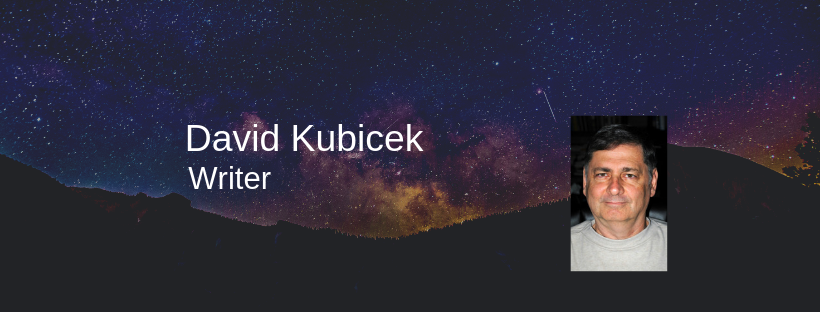by David Kubicek
I have long been a connoisseur of quotes, those nuggets of wisdom packed into a few well-chosen words. Here are a few of my favorites:
On Writing
In early 1988 a Lincoln Journal-Star reporter asked me what advice I would give to aspiring writers. I replied that they should see a psychiatrist to figure out why they have this masochistic urge (the first page of the Journal-Star article is here, and the second page is here). Years later I came across this quote from Dorothy Parker in which she expressed the same sentiment but more eloquently:
“If you have any young friends who aspire to become writers, the second-greatest favor you can do them is to present them with copies of The Elements of Style. The first-greatest, of course, is to shoot them now, while they’re happy.”
Ernest Hemingway said:
“Write as well as you can and finish what you start.”
I try to follow his advice. I have no problem with the first part because I’m a bit of a a perfectionist, but the second part causes me more grief, as my stack of unfinished manuscripts will attest to. Although, in my defense, some of the unfinished stories are just delayed; “Prospect Street” and “Time Capsule”, which can be found in The Moaning Rocks and Other Stories, were completed after lying dormant for more than 20 years because it took me that long to figure out how to end them.
I also try to emulate Elmore Leonard, who said, when he was asked to what he attributed the popularity of his detective novels:
“I leave out the parts that people skip.”
And I agree with writer Donald Windham, who said:
“I disagree with the advice ‘Write about what you know.’ Write about what you need to know, in an effort to understand.”
On Culture
Ray Bradbury used the following quote from Spanish poet and Nobel laureate Juan Ramon Jimenez as the epigraph to Fahrenheit 451, his 1953 novel about the desensitization of our culture:
“If they give you ruled paper, write the other way.”
And speaking of book burning, Ray Bradbury said:
“You don’t have to burn books to destroy a culture. Just get people to stop reading them.”
“Morality is doing what is right, no matter what you are told. Religion is doing what you are told, no matter what is right.”–H.L. Mencken.
On Human Beings
Here are some comments about the human condition that caught my eye over the years. Some of them are serious and some are tongue-in-cheek:
“There are two ways to be fooled. One is to believe what is not true; the other is to refuse to accept what is true.“—Soren Kierkegaard.
“Women and cats will do as they please, and men and dogs should relax and get used to the idea.”—Robert A. Heinlein
“It is amazing how much you can accomplish when it doesn’t matter who gets the credit.”—Harry S. Truman.
“Whether you think you can or think you can’t—you’re right.”—Henry Ford.
Our world is not divided by race, color, gender, or religion. Our world is divided into wise people and fools. And fools divide themselves by race, color, gender, or religion. — Mohamad Safa
“Society is like a stew. If you don’t stir it up every once in a while then a layer of scum floats to the top.”—Edward Abbey
“I learned that it is the weak who are cruel, and that gentleness is to be expected only from the strong.”—Leo Rosten.
On Intelligence and Politics
In July, 2020, the approval rating of Congress was 18%. This low regard for the legislative branch of our federal government is not new. Mark Twain, who died in 1910, said:
“Suppose you were an idiot. And suppose you were a member of Congress. But I repeat myself.”
For many years I’ve said that some people consider ignorance to be a virtue and that I try not to use the question “How stupid can you be?” sarcastically because some people take that as a challenge. Then I came across this quote from writer Isaac Asimov, who expressed the same sentiment but did so more eloquently:
“There is a cult of ignorance in the United States, and there always has been. The strain of anti-intellectualism has been a constant thread winding its way through our political and cultural life, nurtured by the false notion that democracy means that ‘my ignorance is just as good as your knowledge’.”
For more information about David Kubicek’s books click here.
